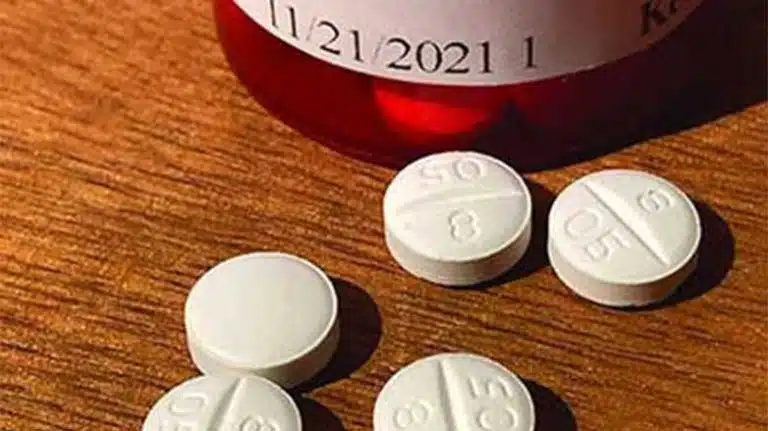Trazodone Dosage Guide & Uses
- Trazodone Dosage
- Trazodone Dosage For Depression
- Trazodone Dosage For Insomnia
- Trazodone Dosage For Anxiety
- Maximum Dosage
- Mixing Trazodone With Other Drugs
- Trazodone Overdose Risk

Trazodone (brand names Desyrel and Oleptro) is classified as an antidepressant prescription medication, a central nervous system (CNS) depressant, and a serotonin receptor antagonist and reuptake inhibitor (SARI).
Trazodone is only approved for the treatment of depression in adults but it also has some off-label uses including treating anxiety and insomnia.
What dosage is right for you depends on your body mass, age, gender, why the drug was prescribed, and a number of other factors.
Trazodone Dosage By Condition
Trazodone is most often prescribed in doses from 50-100 mg but can go all the way up to 300 mg. Your healthcare professional will likely start you on a lower dose and then increase it as needed.
The 50 mg pill can also be broken in half on the score line for a 25 mg dose, if necessary.
Depression
To treat major depressive disorder in adults, 150 mg of trazodone is likely prescribed. If that isn’t enough, your healthcare provider may increase the dosage by 50-75 mg every 3-7 days until you achieve the desired results.
For children with pediatric depression, the dose can depend on the age of the child. For those 6-12, the dose is likely 2 mg per day. For children over 12, 25-50 mg per day is the typical dosage.
Insomnia
It may not be approved by the Food and Drug Administration (FDA), but trazodone is occasionally used to treat insomnia because it can be safer than other sleep medications.
When prescribed for sleep, the dosage is likely between 25-100 mg and can be increased up to 200 mg if necessary.
Anxiety
Treating anxiety is another off-label use for trazodone. It regulates the neurotransmitters serotonin and norepinephrine that are linked to anxiety and has been shown to ease symptoms.
For anxiety, a healthcare provider will likely prescribe 50-150 mg of trazodone to be taken 2-3 times a day. If a higher dose is needed, they may increase that by 50 mg every 3-4 days.
Maximum Dosage Of Trazodone
The maximum dosage of trazodone allowed depends on your age and the setting where the medication is administered.
For adults, the maximum dosage for immediate-release trazodone tablets in outpatient care is 400 mg per day. In an inpatient setting, the max is 600 mg per day. For the extended-release formulation, the max is 375 mg per day.
For adolescents and young adults, doses in clinical trials have not exceeded more than 150 mg per day.
For children 6-12 years old, 6 mg per day is the maximum dose given.
Side Effects Of Trazodone
No matter what dosage of trazodone you take, there is a risk of adverse effects which can range from mild to severe in intensity.
The most common side effects may include:
- nausea
- vomiting
- constipation
- blurred vision
- lightheadedness
- dry mouth
- priapism/prolonged erection
- suicidal thoughts
Drug Interactions
There are certain medications that should not be taken with trazodone as they can react negatively and lead to serious side effects. For example, taking trazodone with an SSRI can increase the risk of serotonin syndrome.
Other medications trazodone shouldn’t be mixed with include:
- certain vitamins and supplements
- antifungals like itraconazole and ketoconazole
- NSAIDs such as aspirin and ibuprofen
- digoxin
- fentanyl
- indinavir
- monoamine oxidase inhibitors (MAOIs) like linezolid or methylene blue
- phenytoin
- sedatives
- selective serotonin reuptake inhibitors (SSRIs) like Celexa
- serotonin-norepinephrine reuptake inhibitors (SNRIs)
- tricyclic antidepressants
Contraindications
There are also several contraindications or medical conditions trazodone can make worse. If you take trazodone with any of the following conditions, it can exacerbate the symptoms and be very serious:
- QT prolongation
- history of cardiac arrhythmias or other cardiovascular issues
- history of bipolar disorder or other psychiatric disorders
- hyponatremia
- glaucoma
- high blood pressure
- sickle cell anemia
- leukemia
- kidney disease
Additionally, if you are pregnant or breastfeeding, you’ll want to talk to your doctor about whether trazodone will harm the baby.
Overdose Risk
If you’re abusing trazodone or taking higher doses, there’s an increased risk of an overdose which can be life-threatening if left untreated.
Some of the symptoms of a trazodone overdose may include:
- drowsiness
- seizures
- irregular heart rhythm
- respiratory arrest
- orthostatic hypotension/low blood pressure when standing up
- dizziness
- nausea
- vomiting
- insomnia
- coma
Withdrawal Symptoms
If you abuse trazodone over a long period of time, your body can build up a dependency on it. If your body is dependent on the drug and you try stopping trazodone, withdrawal symptoms are likely to occur. These symptoms can include:
- anxiety
- confusion
- dizziness
- headache
- trouble sleeping
If you or a loved one is struggling with trazodone abuse, there are lots of treatment options available. At Ark Behavioral Health, we provide various forms of treatment including detox, inpatient/outpatient care, and aftercare.
For more information, please call our helpline today.
Written by Ark Behavioral Health Editorial Team
©2024 Ark National Holdings, LLC. | All Rights Reserved.
This page does not provide medical advice.
National Library of Medicine: MedlinePlus - Trazodone
National Library of Medicine: StatPearls - StatPearls

Questions About Treatment?
Ark Behavioral Health offers 100% confidential substance abuse assessment and treatment placement tailored to your individual needs. Achieve long-term recovery.
100% confidential. We respect your privacy.
Prefer Texting?
Our friendly support team is here to chat 24/7. Opt out any time.







 Learn More
Learn More








